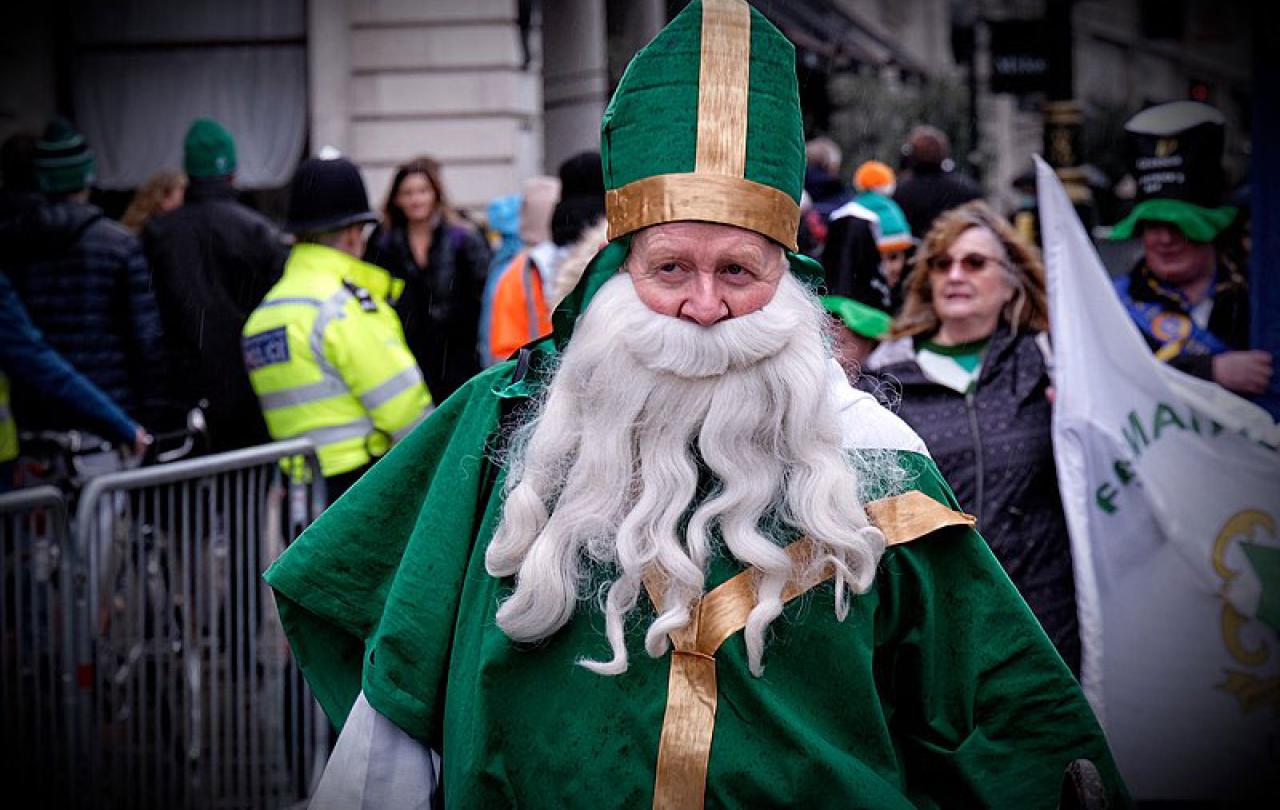
The local pub has a sign out the front: 'Celebrating the Saints'. You would, too, if you were a landlord with Guinness on tap. And as we paint the town green, celebration is even more at the heart of St Patrick’s Day than we first realise. Beyond the frivolity, there’s foundations to be found in this kind of celebrating. St Patrick was a man who knew how to celebrate well. So instead of merely celebrating St Patrick, what if we were to celebrate like him?
The link to St Patrick himself on St Patrick’s Day might feel as tenuous as a pub’s signage or an American politician celebrating their Irishness, but its origins are worth celebrating. St Patrick didn’t have an easy start. It’s a tale of pirates, a king, and turning around a country. Either born in northern England or Scotland in 385, he was taken to Ireland and spent about six years in forced labour before he had a vision or a dream to escape back to Britain. And yet he was then, remarkably, driven to return to Ireland, despite threats on his life. As someone faced with this antagonism, those of us looking to change the world today can learn a thing or two from his approach.
In How the Irish Saved Civilization, Thomas Cahill wrote: 'Patrick found a way of swimming down to the depths of the Irish psyche and warming and transforming Irish imagination—making it more humane and more noble while keeping it Irish.' He was able to celebrate the good in what he saw, and inhabit the culture, while remaining distinctive, and changing it from the inside.
Take a leaf out of St Patrick's book. Patrick had a mission, and Dr George G. Hunter writes that, without compromising, ‘One day, he would feel [the Irish] were his people.' Identifying with the enemy is probably not the first thing we try. When it comes to the battles we're facing as a society, and all the ways norms need to change, can we change ideas robustly, winsomely and gently all at once? Think of the kind of protest today that is polarising, loud, and often destructive rather than constructive. You don’t build bridges by damaging things. Clickbait doesn't mean connection. And pressure rarely leads to persuasion in things of significance.
As our world finds itself on the rocks, we’d do well to not only get to the bottom of the glass, but also where all the energy for this celebrating originates.
So how could he celebrate others, while staying secure in himself and his own values? His ability to celebrate others was found in the way he celebrated God. It was during St Patrick’s captivity that he was captured by his faith and became captivated by Jesus Christ. The prayer known as St Patrick's Breastplate shows a man totally immersed in God. It’s both the resolve and the resilience he found in the Trinity that characterised his life. John H. Darch and Stuart K. Burns write:
'The adventures and escapades of his journey home honed his reliance upon God, and when he finally returned to his family he felt that he should become a priest, and began a period of training that was to last for several years. According to tradition, some years later in 431 Patrick, newly consecrated bishop, returned to Ireland. He devoted himself to evangelism, reconciliation amongst local chieftains, and the training of monks and nuns.’
So, as we raise a Guinness or a whiskey, we are inadvertently celebrating a man who changed the hearts and minds of a nation through prayer and the practical presence of the church in the country. As our world finds itself on the rocks, we’d do well to not only get to the bottom of the glass, but also where all the energy for this celebrating originates.





